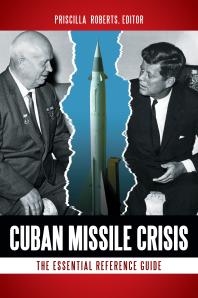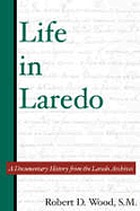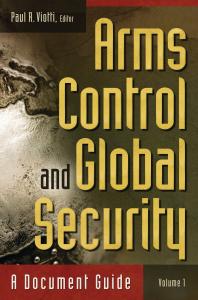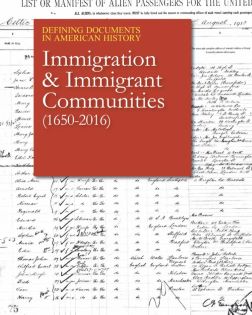Modern Latin American History - HIST239 - Primary Sources
Resources in Library Catalog
eBooks on this list are only available to RVCC students, faculty, and staff and require a login with your G# and password.
Search strategies:
- Use the Advanced Search in the Books, eBooks, & Media Catalog to search in Subjects.
- Subjects are formal descriptors developed by the Library of Congress. Surprisingly, "primary source" is not an official descriptor! Here are some better options:
- Personal narratives
- Diaries
- Sources
- Combine those with the name of a nation
- Example: Cuba personal narratives
- Example: Mexico sources
Specific nations or people(s)
Adios to tears : the memoirs of a Japanese-Peruvian internee in U.S. concentration camps
Details the formative period of Japanese migration to Peru and, just as importantly, the trying experience of the author, his family, and 1,800 other Japanese-Peruvians who were interned in the US during WWII. Excellent memoir portrays Asian immigrant experience of cultural adaptation in Latin America (eBook).

After Africa : extracts from British travel accounts and journals of the seventeenth, eighteenth, and nineteenth centuries concerning the slaves, their manners, and customs in the British West Indies
This compilation consists of a sampling of early accounts by 72 missionaries, travelers, and planters over 300 years of British colonization in the "New World." The editors' goal is to explore the extent that African traditions, including ceremonies, work, play, and religion, continued in the Americas.

The Bay of Pigs: The leaders' story of Brigade 2506
The shocking nationwide bestseller that tells the inside, never-before-told, completely documented account of the Cuban invasion, including the controversial indictment of the C.I.A.
Bay of Pigs declassified : the secret CIA report on the invasion of Cuba
Includes the Inspector General's report on the investigation of the Central Intelligence Agency's Bay of Pigs invasion plans as well as commentary on and a chronology of the event.

The broken spears; the Aztec account of the conquest of Mexico
The conquest of Mexico told by the Aztecs and their descendants. These texts bear witness to the extraordinary vitality of an oral tradition that preserves the viewpoints of the vanquished instead of the victors.
The Conquest of the Last Maya Kingdom
On March 13, 1697, Spanish troops from Yucatán attacked and occupied Nojpeten, the capital of the Maya people known as Itzas, the inhabitants of the last unconquered native New World kingdom. This political and ritual center--located on a small island in a lake in the tropical forests of northern Guatemala--was densely covered with temples, royal palaces, and thatched houses, and its capture represented a decisive moment in the final chapter of the Spanish conquest of the Mayas.

Cuban missile crisis : the essential reference guide
This book captures the historical context, the minute-by-minute drama, and the profound repercussions of the "Missiles of October" confrontation that brought the very real threat of nuclear attack to the United States' doorstep (eBook).

A documentary history of Brazil
A history of Brazil built around primary sources such as treaties and other official documentation.

El Libertador : Writings of Simon Bolivar
General Simon Bolivar (1783-1830), called El Liberator, and sometimes the "George Washington" of Latin America, was the leading hero of the Latin American independence movement. Although Bolivar never prepared a systematic treatise, his essays, proclamations, and letters constitute some of the most eloquent writing not of the independence period alone, but of any period in Latin American history (eBook).
The English in the West Indies; or The bow of Ulysses
After visiting the British colonies in the "West Indian Islands," Froude published his experiences and reflections in 1887.

Episodes of the Revolutionary War
Ernesto Che Guevara became a central leader of the Cuban revolution and one of the outstanding communists of the 20th century. This book is his firsthand account of the military campaigns and political events that culminated in the January 1959 popular insurrection that overthrew the U.S.-backed dictatorship in Cuba.
Haiti - A Slave Revolution
Drawing from a wide range of authors, experts, and historical texts, this collection challenges historical stereotypes and counters 200 years of cultural myths and disinformation. These essays explain the background to the current crisis in Haiti, revealing the intertwined relationship between the United States and Haiti and the untold stories of the Haitian people's resistance to U.S. aggression and occupations. Included are a time line, photo essay, author biographies, and bibliography. This revised edition also includes context surrounding the response to the tragic 2010 earthquake disaster.

History will absolve me: the Moncada Trial defence speech, Santiago de Cuba, October 16th, 1953
Translation of a speech written by a young Fidel Castro for his trial for insurrection after the uprising of July 26, 1953.
Hotel Bolivia : the culture of memory in a refuge from Nazism
Spitzer examines his childhood, born of German Jewish refugees in Bolivia. He tells how his parents came to Bolivia and describes their life in the new country. Emphasizes memory and the place of dispossessed German Jews in a foreign country, with Bolivian context in 1940s.

Huenun Ñamku; an Araucanian Indian of the Andes remembers the past
In the 1960's, ethnologist M. Inez Hilger and her assistant, Margaret Murdoch, lived for months among the Araucanians, primarily to collect information on child life. Among the persons they interviewed was an old man who was eager to preserve his people's history. Recorded here are the traditions, history and tales of the Araucanians as he related them.
A journey in Brazil
In the winter of 1865, Agassiz traveled to Brazil with his wife, Elizabeth, who is the chief author of this volume. Louis added scientific facts, including information about his studies of the fauna.
Letters from Mexico
Hernán Cortés’s Cartas de Relacíon, written over a seven-year period to Charles V of Spain, provide an extraordinary narrative account of the conquest of Mexico from the founding of the coastal town of Veracruz until Cortés’s journey to Honduras in 1525.

Life and labor in ancient Mexico; the brief and summary relation of the Lords of New Spain
The "Brief and Summary Relation of the Lords of New Spain" is one of the major contemporary accounts of the economic, political, and social impact of the conquest of Aztec Mexico. Written by Alonso de Zorita, a Spanish judge of high integrity and many years' experience in colonial administration, it provides a detailed description of Aztec life before and after the Conquest. Based on Zorita's stay in Mexico from 1556 to 1566, it reflects the anguish felt by a devoted and humane servant of the Crown.

Life in Laredo : a documentary history from the Laredo Archives
Based on documents from the Laredo Archives, this work shows the evolution and development of daily life in a town under the flags of Spain, Mexico, and the United States. Robert D. Wood, S.M., presents the first one hundred years of history and culture in Laredo up to the mid-nineteenth century. (eBook).

A Man called Bee : studying the Yanomamö
Follows anthropologist Napoleon Chagnon as he collects anthropological field data among the Yanoama Indians of southern Venezuela. Includes information about the Yanomamo, such as their system of kinship ties, their religious beliefs and ceremonies, and the growth and fissioning of their widely scattered villages (online video).
Maya conquistador
Maya Conquistador tells the tale of Mexico's conquest through a collection of unique first-hand accounts - most of them previously untranslated from the original Maya texts - written from the sixteenth through nineteenth centuries. In it are surprising twists: The conquistadors were not only Spaniards, but also Mayas, reconstituting their own sophisticated governance and society.

Memory, oblivion, and Jewish culture in Latin America
Latin America has been a refuge for Jews fleeing persecution from 1492, when Sepharad Jews were expelled from Spain, until well into the twentieth century, when European Jews sought sanctuary there from the horrors of the Nazi Holocaust. This anthology gathers fifteen essays by historians, creative writers, artists, literary scholars, anthropologists, and social scientists who collectively tell the story of Jewish life in Latin America (eBook).
Mexican history : a primary source reader
A comprehensive and innovative primary source reader in Mexican history from the pre-Columbian past to the neoliberal present. Its selection of documents thoughtfully conveys enduring themes of Mexican history, land and labor, indigenous people, religion, and state formation.
Migrant Longing
Drawing upon a personal collection of more than 300 letters exchanged between her parents and other family members across the U.S.-Mexico border, Miroslava Chavez-Garcia recreates and gives meaning to the hope, fear, and longing migrants experienced in their everyday lives both "here" and "there" (aqui y alla). As private sources of communication hidden from public consumption and historical research, the letters provide a rare glimpse into the deeply emotional, personal, and social lives of ordinary Mexican men and women as recorded in their immediate, firsthand accounts.
One Minute to Midnight
In October 1962, at the height of the Cold War, the United States and the Soviet Union appeared to be sliding inexorably toward a nuclear conflict over the placement of missiles in Cuba. Veteran Washington Post reporter Michael Dobbs has pored over previously untapped American, Soviet, and Cuban sources to produce the most authoritative book yet on the Cuban missile crisis. In his hour-by-hour chronicle of those near-fatal days, Dobbs reveals some startling new incidents that illustrate how close we came to Armageddon.

Palante : Young Lords Party
In 1969, a group of young, primarily Puerto Rican activists founded a chapter of the Young Lords Organization in New York City. The Young Lords organized directly in Latino/a communities, challenging slum housing conditions, providing "serve the people programs" that offered food, health services, and child care, and staging dramatic takeovers of neighborhood institutions. Here is the first book by and about the Young Lords.
The Pinochet file : a declassified dossier on atrocity and accountability
Reveals a formerly secret record of complicity with atrocity on the part of the U.S. government. Uses documents that formed the heart of the international campaign to hold Pinochet accountable for murder, torture, and terrorism (eBook).
The Slaves Who Defeated Napoleon
In this ambitious monograph, Philippe Girard employs the latest tools of the historian's craft, multi-archival research in particular, and applies them to the climactic yet poorly understood last years of the Haitian Revolution. Haiti lost most of its archives to neglect and theft, but a substantial number of documents survive in French, U.S., British, and Spanish collections, both public and private. In all, The Slaves Who Defeated Napoleon relies on contemporary military, commercial, and administrative sources drawn from nineteen archives and research libraries on both sides of the Atlantic. (also available as an eBook)

Small earthquake in Chile; Allende's South America
Part history and current affairs, part travelogue, this is the story of a journey made by Alistair Horne and American politician/journalist, Bill Buckley through Colombia, Peru, Chile and Bolivia. They set off in September 1970, just after a Marxist government had come to power in a free election in Chile.
The Soviet Cuban Missile Crisis : Castro, Mikoyan, Kennedy, Khrushchev, and the missiles of November
Based on secret transcripts of top-level diplomacy undertaken by the number-two Soviet leader, Anastas Mikoyan, to settle the Cuban Missile Crisis in 1962, this book rewrites conventional history. 300 pages of documents include: telegrams, memoranda of conversations, instructions to diplomats, etc.
Tejanos in gray : Civil War letters of Captains Joseph Rafael de La Garza and Manuel Yturri
Forty-one letters and letter fragments written by two Mexican Texans, Captains Manuel Yturri and Joseph Rafael de la Garza, reveal the relationships that characterized the lives of Texan citizens of Mexican descent in the years leading up to and including the Civil War (eBook).
Testimonio : a documentary history of the Mexican American struggle for civil rights
Historical documents help chronicle the struggle of Mexican Americans for equal civil rights in the United States from the early 1800s through the modern era, with individual prefaces for each document and suggestions for further reading (eBook).
The United States discovers Panama : the writings of soldiers, scholars, scientists, and scoundrels, 1850-1905
Marking the centennial of Panama's separation from Colombia in 1903, this volume reprises U.S. images of the isthmus a century ago. The editors have collected a fascinating selection of articles from two of the most influential publications of the era, Harper's Monthly Magazine and the Atlantic Monthly, to illustrate the prejudices and expansionistic rhetoric of the time (eBook).
U.S.-Mexico borderlands : historical and contemporary perspectives
Excellent collection of scholarly essays and primary documents. Covers 1830s-1990s, with the emphasis on the post-1910 era. Work is divided into seven sections, each covering a key issue in borderlands history.
Voices from Vilcabamba
A rich new source of important archival information, Voices from Vilcabamba examines the fall of the Inca Empire in unprecedented detail. Containing English translations of seven major documents from the Vilcabamba era (1536-1572), this volume presents an overview of the major events that occurred in the Vilcabamba region of Peru during the final decades of Inca rule. Brian S. Bauer, Madeleine Halac-Higashimori, and Gabriel E. Cantarutti have translated and analyzed seven documents, most notably Description of Vilcabamba by Baltasar de Ocampo Conejeros and a selection from Martín de Murúa's General History of Peru, which focuses on the fall of Vilcabamba. Additional documents from a range of sources that include Augustinian investigations, battlefield reports, and critical eyewitness accounts are translated into English for the first time.
Waiting for snow in Havana : confessions of a Cuban boy
In 1962, at the age of eleven, Carlos Eire was one of 14,000 children airlifted out of Cuba--exiled from his family, his country, and his own childhood by the revolution. The memories of Carlos's life in Havana are at the heart of this stunning, evocative, and unforgettable memoir.
The World War I diary of José de la Luz Sáenz
José de la Luz Sáenz served in France and Germany in 1918. Published in Spanish in 1933, his annotated book of diary entries and letters recounts not only his own war experiences but also those of his fellow Mexican Americans (eBook).
General Latin American History

Arms Control and Global Security : a Document Guide
Arms Control and Global Security: A Document Guide offers an unprecedented and comprehensive collection of arms-control documents dating from the late-19th century to the present. The book includes documents addressing the control of weapons of mass destruction, the banning of biological and chemical weapons, the weaponization of space, regional arms control, and bilateral agreements, as well as the limitations of conventional weaponry (eBook).
American diaries : an annotated bibliography of published American diaries and journals
V.1 - Diaries written from 1492 to 1844 -- V.2 - Diaries written from 1845 to 1980. This impressive work expands and revises the pioneer efforts of William Matthews 's American Diaries: An Annotated Bibliography of American Diaries Written Prior to the Year 1861. The authors have increased the scope of the work to include Spanish-American, Alaskan, and Hawaiian material and diaries of American missionaries serving in foreign countries.
Bartolomé de Las Casas and the Defense of Amerindian Rights
Bartolomé de las Casas and the Defense of Amerindian Rights: A Brief History with Documents provides the most wide-ranging and concise anthology of Las Casas's writings, in translation, ever made available. It contains not only excerpts from his most well-known texts, but also his largely unavailable writings on political philosophy and law, and addresses the underappreciated aspects of his thought. Fifteen of the twenty-six documents are entirely new translations of Las Casas's writings, a number of them appearing in English for the first time.
Born in blood and fire : Latin American voices
A thematic anthology of primary sources for Latin American social and cultural history, this book draws on newspapers, novels, magazines, and journals―many translated by Chasteen himself―to present compelling narrative accounts of life and society across Latin American history.
The Columbia documentary history of race and ethnicity in America
This invaluable resource documents all eras of the American past, including black/white interactions and the broad spectrum of American attitudes and reactions concerning Native Americans, Irish Catholics, Mexican Americans, Jewish Americans, and other groups. Each of the eight chronological chapters contains a survey essay, an annotated bibliography, and 20 to 30 related public and private primary source documents, including manifestos, speeches, court cases, letters, memoirs, and much more (eBook).

Crisis and opportunity : U.S. policy in Central America and the Caribbean : thirty essays by statesmen, scholars, religious leaders, and journalists
Includes essays on U.S. policy from the 20th century, including "U.S. responsibility in Central America" by Ronald Reagan, "On the Caribbean revolution" by Fidel Castro, and "Crisis and our opportunity" by the Kissinger Commission.
The Declaration of Independence : a global history
In a stunningly original look at the American Declaration of Independence, David Armitage reveals the document in a new light: through the eyes of the rest of the world. Not only did the Declaration announce the entry of the United States onto the world stage, it became the model for other countries to follow.

Defining Documents in American History: Immigration & Immigrant Communities (1650-2016)
This text explores the full history of immigration issues in America, from those early immigrants making their way through Ellis Island, to immigration issues in modern society. With in-depth analysis of a broad range of documents, researchers come away with fresh understanding and insight to study this hot button topic (eBook).
Documents in world history
V.1. The great traditions: from ancient times to 1500 -- V.2. The modern centuries: from 1500 to the present. Documents in World History is a thematically organized, authoritative collection of original sources that highlight political, social, cultural and economic issues in world history. The text also provides documents on the hot topics of gender and cultural history (Reference books must be used in the library).

The encyclopedia of war journalism, 1807-2010
This book examines the development, history, and current state of war journalism. Primary sources are scattered throughout the book; after clicking "Read Online," click on "Primary Documents" to see where they are located (eBook).
The human record : sources of global history
V.1 - to 1500 -- V.2 - Since 1500.
THE HUMAN RECORD is the leading primary source reader for the World History course, providing balanced coverage of the global past. Each volume contains a blend of visual and textual sources which are often paired or grouped together for comparison.
Latin American posters : public aesthetics and mass politics
This book traces four decades of Latin American social and political history during a time of widespread crisis and unrest. With images from the Sam L. Click Collection of Latin American and Iberian Posters at the UNM University Libraries, the book documents radical political, social, and artistic movements whose concerns are as relevant today as in their time.

Manifest destiny
Contains 41 primary pro or con arguments on America's "manifest destiny" in the 1840s; regarding the acquisition of Texas, California, Oregon, etc.
Milestone documents in world history : exploring the primary sources that shaped the world
V. 1. 2350 BCE-1058 CE -- v. 2. 1082-1833 -- v. 3. 1839-1941 -- v. 4. 1942-2000.
Key documents from all important world cultures are included, from the ancient Near East and ancient Egypt to the Greek and Roman Empires, medieval Islam, Renaissance Europe, and modern Africa and Asia. Constitutions, speeches, letters, acts, treaties, and legal cases are all covered (Reference books must be used in the library).
Race and racism in the United States : an encyclopedia of the American mosaic
This book provide readers with comprehensive content supplemented by historical backgrounds, relevant examples from primary documents, and first-hand accounts. To access primary source documents, click List of Primary Documents under Contents. Not all primary sources on this list are available online (eBook).

World History in Documents
Covers key events that have altered world history and promotes the ability to study history with primary sources and the ability to compare aspects of major societies (Reference books must be used in the library).
- Last Updated: Sep 4, 2025 2:48 PM
- URL: https://library.raritanval.edu/hist239
- Print Page

